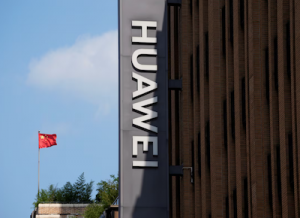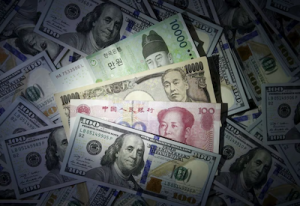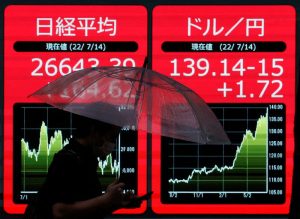(ATF) Real estate companies are facing a surge of bond defaults as a one-third of a trillion yuan of debt as the once-booming industry struggles to recover from the pandemic downturn.
With financing costs rising, debt loads climbing and falling sales eroding liquidity, many firms will be unable to pay the more than 360 billion yuan ($53bn) that Shell Research Institute estimates will mature before the end of December, an increase of 68% over the same period in 2019. Debt maturing in November alone is expected to be the highest for any month, reaching 107.1bn yuan.
With the new “three red lines” rule imposed by the central government, which finely controls the scale of interest-bearing debts of such firms, cash flow has become even more important. The best way to do that is by selling more property. But with fewer buyers in the market, that avenue will prove difficult and the likely result will be even more defaults.
Among bonds coming due in the coming weeks are Oceanwide Holdings’ 1.5bn yuan 15 Pan-control 01 security, Country Garden’s 1bn yuan 15 Biyuan 01 note and Greentown China’s 600 million yuan, 4.5% USD Greentown China N20201110 debt.
PROPERTY WOES: China’s real estate black hole grows as govt mulls takeovers
Tahoe Group said on October 10 that high financing costs and concentrated debt payments are weighing on its ability to repay 35bn yuan of outstanding bonds. The soonest payment due, 1.7bn yuan on its 7.5% H7 Tahoe 02 bond, is unlikely to be paid, it said.
That wouldn’t be the first of Tahoe’s defaults; on July 6 it failed to make a payment on its MTN001 debt and the next month it defaulted on payments due on it 17 Tahoe MTN002 and 17 Tahoe 01 notes.
Tahoe isn’t alone.
- CITIC Construction said on September 14 that due to the default of the Tianfang Group’s 16 Tianfang 04 bonds, trading on two of its other bonds had been suspended. CITIC Construction Investment is trustee of the debt. The suspension came after the Shanghai Stock Exchange said Tianfang had until September 8 to pay the principal of 700 million yuan on its 16 Tianfang 04 bond and interest of 53.9 million yuan. However, the company said it was underfunded and unable to raise the funds in full.
- Earlier, 19 Xinhua Liankong SCP002 and 15 Xinhua Liankong MTN001 failed to pay the principal and interest on time. The company said the pandemic had decimated the cultural tourism, commercial retail and other industries in which it has interests. In January-February, it reduced operating funds by more than 6bn yuan. Coupled with the continued “leverage reduction and difficulty in issuing debt for private enterprises”, liquidity is extremely tight.
Other troubled firms are asking investors to take a haircut – accept lower payouts – to ease the burden of their repayments crunch. Media reports on September 11 said Oceanwide Holdings has asked bondholders to accept just 10% of payments due at the end of his month on its 15 Oceanwide MTN001 bond and to accept more debt in lieu of the balance.
According CICC research, slowing real estate sales growth has been pressuring liquidity levels and increasing credit risk for years. Its 2020 semi-annual report shows that the overall short-term debt of real estate companies is “serious” and the worst since 2015.
“Under the background of tightening financing, the importance of factors such as scale strength and financial strength has increased,” said Tao Jin from the Suning Financial Research Institute in an interview with China Securities News. “Smaller scale, those who aggressively expanded in the early stages of starting business, has led to tight funding trends, or falling into a vicious circle of increasing financing difficulty and declining reputation affecting sales. This type of real estate company has an increased risk of defaulting on debt.”
Rising cost of borrowing
Rising defaults are translating into soaring borrowing costs as investors demand higher premiums to compensate for the risk of not getting their money back. According to data from the Crane Real Estate Research Center, the total debt financing of 95 typical real estate companies in September was 115.4bn yuan, up 6.5%% from the previous month, though down 3.8% year-on-year.
Domestic debt financing was 80.3bn yuan, a month-on-month increase of 6.4% and a year-on-year increase of 34%; overseas debt financing was 26.9bn yuan, a month-on-month increase of 21.7% and a year-on-year drop of 35.9%. In September, the amount of domestic debt financing maintained its strongest performance since March.
In September, the total amount of real estate bond financing was 65.1bn yuan, an increase of 16.6% month-on-month and a year-on-year increase of 25.7%. Overseas debt financing was 24.3bn yuan, up 29.1% month-on-month and down 30.4% year-on-year; domestic debt was 40.9bn yuan, up 10.3% month-on-month and up 141% year-on-year.
CHINA BONDS: China bonds the new global draw
The average financing cost of housing companies in September was 5.5%, an increase of 0.19 percentage points from the previous month. The average domestic financing cost was 4.84%, the highest average value in a single month during the year. According to the Crane Real Estate Research Center, the rise in domestic debt costs is mainly due to the further tightening of the financing environment, especially under the “three red lines” financing rules.
The coupon on China Fortune’s most recent bond, a 1.25bn yuan note, for instance, was 7.09%.
Some real estate companies have sought to lower borrowing costs by restructuring their debt with such low-rate instruments as housing development loans. But only those that issued bonds in 2017 and 2018 have been able to reduce the cost of borrowing through this means.
Guaranteed cash flow
For the time being, increasing sales remains the only viable way for companies to boost cash flow.
“Sales collection is an important source of funds for real estate companies to repay debts and improve liquidity,” said Tao Jin. “In the face of debt and cash flow pressure, real estate companies should increase marketing measures to promote sales and speed up payment collection to ensure the safety of cash flow.”
September and October – known China as the Golden Nine and Silver Ten – is when real estate companies “snap up” their marketing and promotion. For example, on September 23 China Aoyuan launched its House Picking Festival, offering property with a 12% discount in 20 cities including Beijing, Guangzhou, Shenzhen, Dongguan, Nanning, and Chengdu. China Resources Land’s Mid-Autumn National Day House Buying Festival is offering apartments, shops and parking spaces at more than 200 projects in 70-plus cities with discounts, transaction rewards and other inducements until the end of the month.
DEFLATING MARKET: Tears and fears as China’s property bubble deflates
At the same time, real estate companies are actively launching sales to cater to promotions. Taking the Beijing market as an example, 12 projects in Beijing obtained pre-sale permits, and some of them went on sale on the day they were certified.
According to the official Weibo social media account of Evergrande Group, China’s largest developer, launched nine new projects in Harbin, Chongqing, Guizhou, Qingdao, Zhuhai, Foshan, Baotou and other cities on October 8. By 1.30pm that day, contracted sales exceeded 8bn yuan. China Evergrande has achieved contract sales worth 141.63bn yuan since August.
Huaan Securities estimates that in the fourth quarter, real estate companies will continue their aggressive push. Home-loan interest rates for first-time buyers have fallen steadily since the beginning of the year, boosting demand and signalling that leading real estate companies will return to growth.
Under the new “three red lines” financing regulations, real estate companies have also raised fund through equity sales, spin-offs of subsidiaries and stock-exchange listings.
Chen Xiao, an analyst at the Zhuge Finding a House Data Research Center, believes that under the current financing environment, real estate companies should ensure the safety of cash flow and prevent various financial risks. They should obtain land carefully, increase marketing efforts, expand marketing channels, and accelerate sales pushes. They have shifted from “focusing on scale to focusing on quality”, he added.
Smaller firms unlikely to meet these high standards by the end of 2020 are likely to face bankruptcy or purchase by the state.
























